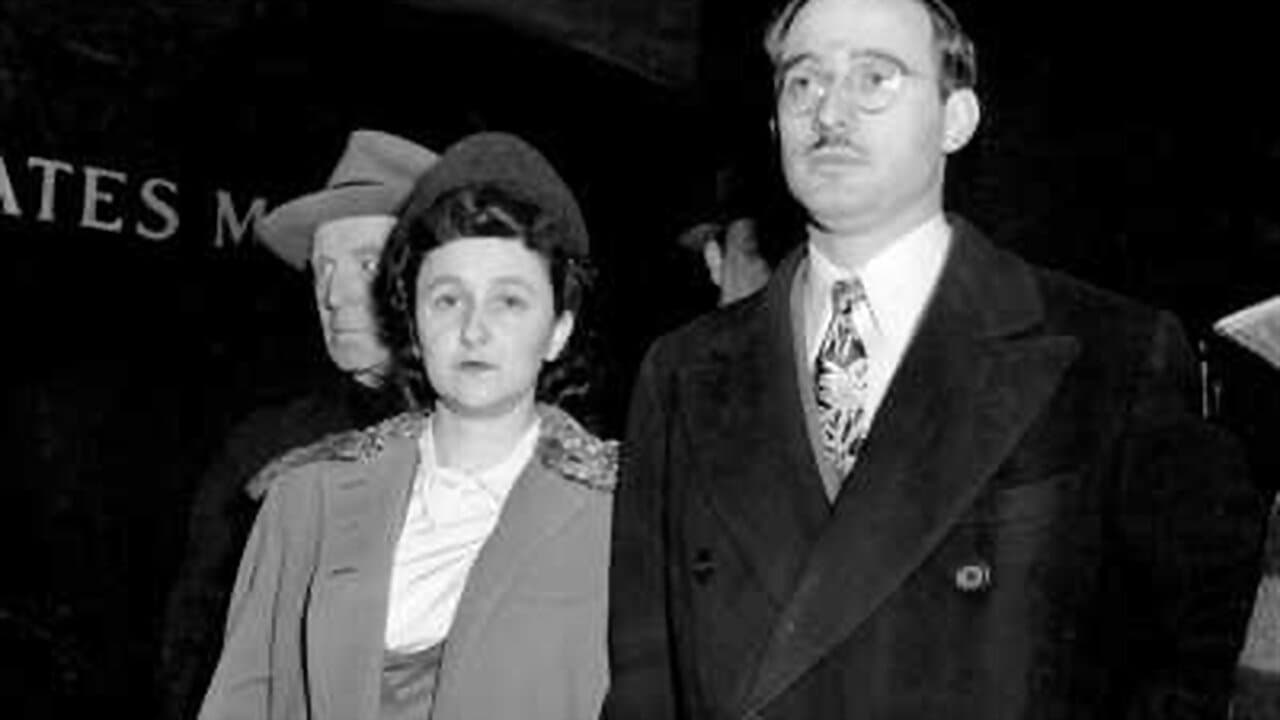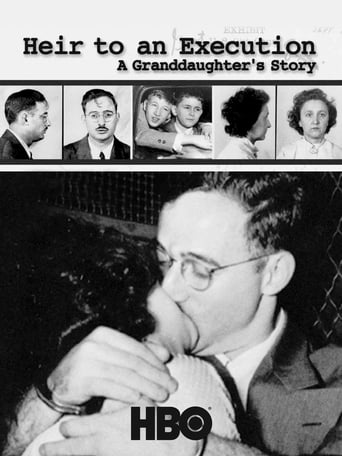ReaderKenka
Let's be realistic.
Comwayon
A Disappointing Continuation
Claire Dunne
One of the worst ways to make a cult movie is to set out to make a cult movie.
Griff Lees
Very good movie overall, highly recommended. Most of the negative reviews don't have any merit and are all pollitically based. Give this movie a chance at least, and it might give you a different perspective.
groggo
Writer-director Ivy Meerepol has been accused of being 'amateurish' or 'naive' in the making of this exceptional film. For me, this lack of 'slickness' is why this doc packs such an emotionally wallop. The starkness and edginess, along with Meerepol's own tentative uncertainties, were entirely commensurate with the shadowy period she was investigating.I was much impressed by Meerepol, who took on a huge challenge: how to find the truth, warts and all, about her larger-than-life grandparents, Julius and Ethel Rosenberg. She is an intelligent and sensitive person on a journey of determined discovery about an era blanketed by dark suspicion and paranoia. I was 15 years old when the Rosenbergs were executed. It was a time of madness in America (a fairly constant thing to this day in my opinion). The norm was mass hysteria, fueled by the American government, about the Red Menace. It was the age of grisly neo-fascists like the alcohol-ridden lunatic Joe McCarthy, the deeply closeted gay-basher Roy Cohn, noted drag queen J. Edgar Hoover, and, yes, Tricky Dicky Nixon. All of them (and many others) casually destroyed countless lives with righteous indignation. They were the last people who should be indignant, righteously or otherwise. Joe Stalin, a great American ally only a few years before (echoes of Saddam and bin Laden 40 years later), was still alive and served as the ideal American villain. He was part of the Axis of Evil long before George Bush pretended he invented the term. These were the hostile social and political conditions surrounding the sacrificial killing of Julius and Ethel Rosenberg. It was only a few years after George Orwell wrote '1984,' but the mind control featured in that book was already embedded in the psyche of the 'Free World'.I was much impressed by Ivy's persistence, and by the brilliant commentary and encouragement of her father Michael (the Rosenbergs' eldest son). When Ivy arranges for Michael and his brother Robert to visit their parents' old apartment, it was a creepy (and powerful) moment in the film. The two brothers seemed overwhelmed by the eerie 'sameness' of the apartment. They were also spooked by the very same elevator that, 50 years earlier, contained a small army of FBI agents who stormed into the apartment and arrested their father. From the moment he left the apartment and stepped into that elevator with the FBI agents, Julius Rosenberg was doomed. This documentary is outstanding, and Ivy Meerepol deserves tremendous credit.
wzmb
Ivy Meeropol has produced an emotionally moving documentary about her infamous grandparents, the Rosenbergs. I liked her work in this film, however her account of this notorious trial of Russian spies and traitors, as well as the effect on both Rosenberg boys, is purely an emotional and subjective view. Julius Rosenberg was definitely a traitor and a Russian spy, operating against the interests of U.S. national security and defense. Ethel was clearly an innocent woman. Julius was arrogant, evil, and extremely selfish not to confess information that would have saved his loving wife Ethel. Obviously, the ramifications were quite extensive as to whom was involved in that espionage ring of secret agents, having smuggled nuclear weapons technology to the Russians. Ivy Meeropol's documentary of the historical events however, never answered the most important question about her grandfather Julius' betrayal of the United States...Why? Why did he do it? What made him commit himself to his loyalty and sympathy for the Russians? Why was he so strongly compelled to give nuclear weapons secrets to the evil heinous empire of Stalin and the Soviet Communist's regime? The long term consequences of Julius Rosenberg's actions are a debacle of infinitesimal proportions. Why do you think we are now horrified that Iran is developing a nuclear weapon to use against the U.S.A.? That same stolen nuclear technology, was given to the Islamic jihadist regime of Iran, by none other than Vladimir Putin and the remnants of his mother Russia!
Hillary Schwarz
Growing up, I had heard the story numerous times of Julius and Ethel. Ethel was my grandmother' cousin. I remember the tale of family members asking for aide and guidance, but that if "the government says they did it..." My family didn't want to get involved either. As a child I always wanted to know: What happened to the kids? Who raised them? Where were they now? Did they know they still had family? This movie really helped me to fill in some blanks-- especially after the creepy encounter my family had at my great-grandmother's funeral a few years back--- David and Ruth Greenglass made an appearance. To my knowledge, the family hadn't had contact with them in decades and there they were--hoping for a handout. Hoping their was some money in it for them. Cowards and Scavengers. That's how I think of them. May God have mercy on their souls for what they did.
bzb2001
The names Julius and Ethel Rosenberg bring on a sweeping sensation of treason. They have become the poster-children for anti-American hatred and fear of foreign ideology. But to some, the names mean mother and father; grandmother and grandfather.I must admit, before I saw this film I didn't even know the Rosenbergs had children. This is left out of history lessons since, after all, what did that have to do with anything? Heir to an Execution, a sensitive and thoughtful documentary from Rosenberg granddaughter Ivy Meeropol, sheds light into a shadowy area of communist spies and family tightness.Meeropol's film begins questioning the famed Rosenberg's death sentences by interviewing old friends and socialist peers. A door is opened into their world in a way I had never seen. Hated so fiercely by the rest of America, these revolutionaries have found their way from prisons to retirement homes.What is far more interesting, however, is what comes next. As Meeropol tracks her grandparents' lives to the electric chair the question of her father and uncle arise. What exactly did happen to them during the chaos? And more importantly, what was to be done with them after the inevitable? Political documentaries are sometimes dry and are often as subtle as a man with a stick pointing at an easel. Heir to an Execution is different. Meeropol raises doubts to at least part of the Rosenberg trial, if not all of it, while at the same time documenting the life of a wonderful man, her father. In the end we don't know which is more important, the Rosenberg injustice or the chronicle of a distinguished life whose path you would not expect winding up here. **** out of ****

